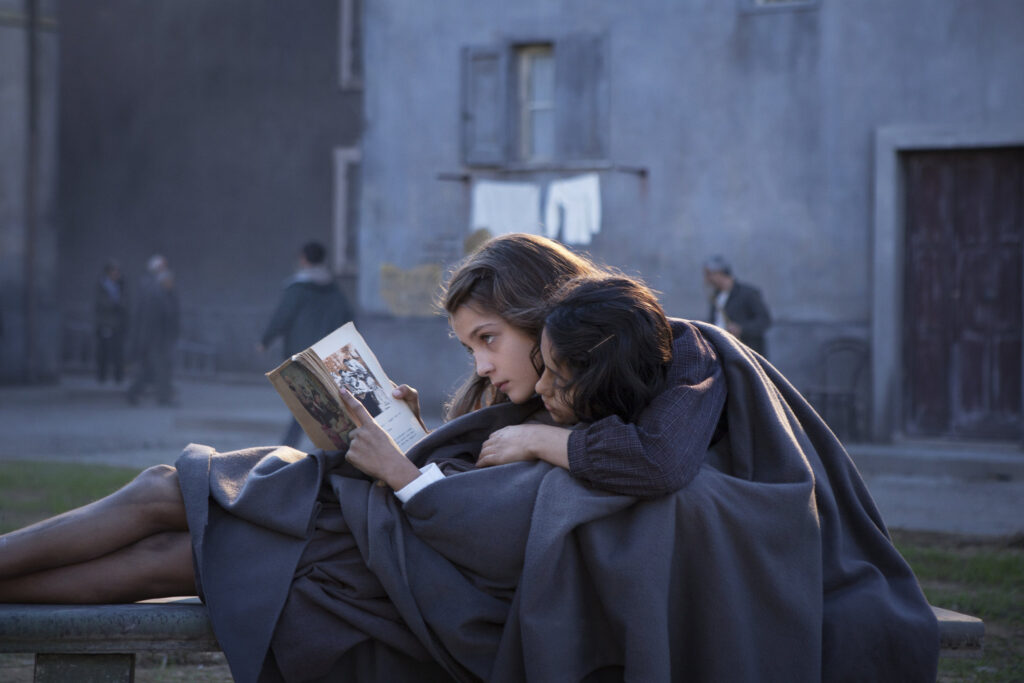Note: If you wish to receive, via e-mail, (1) my weekly newsletter or (2) daily copies of these posts, notify me at rrbates1951@gmail.com and indicate which you would like. I promise not to share your e-mail address with anyone. To unsubscribe, send me a follow-up email.
Thursday
Here’s my weekly update on my incursions into Angus Fletcher’s Wonderworks: The 25 Most powerful Inventions in the History of Literature. The book, which looks at different literary techniques as inventions created by authors to address major life issues, often surprises, which is one of its virtues. I was, for instance, surprised that a work I recently read and enjoyed—Elena Ferrante’s My Brilliant Friend—invented a remedy for loneliness. Or so Fletcher claims.
Although he frequently wanders in his book, Fletcher takes a particularly roundabout way with this claim. He starts with the story of Orpheus, moves to the operas L’Euridice and Monteverdi’s L’Orfeo, shifts to the bestselling penny dreadfuls of the Victorian era (pulp publications that offered up weekly serial installments of “long romantic sagas, supernatural horror tales, and true crime adventures”), and then it’s on to Varney the Vampire and Sweeney Todd (both originally penny dreadfuls), Mario Puzo’s Godfather (the penny dreadful on a grand scale), and finally Brilliant Friend.
I won’t get into what he says about Monteverdi and opera in general—something about presenting us with discord and then winning our deep friendship through harmonic resolutions—but one can certainly see that dynamic at work in the cliffhangers that sold for a penny in the 19th century.
The example Fletcher uses from The Godfather, which occurs early in the novel, is the undertaker whose daughter is savaged and who goes to Don Corleone for justice. The godfather wins our friendship by giving justice where the courts fail.
And yes, that’s the effect I remember the book having on me. Fletcher comments, “[I]n real life, it might be best to avoid the company of gangsters. But not in fiction. In fiction, the don’s friendship is healthy for our brain.”
Then he explains how:
The first healthy thing about befriending The Godfather is that it wards off loneliness.
After going into all the negative physiological consequences of loneliness, Fletcher explains how books can help. As I read Fletcher’s chapter, I thought of Wayne Booth in The Company We Keep, whose central idea is that we should look upon books as friends, with all the benefits and risks that friendship entails. Here’s Fletcher:
When we connect with a book, we can ease that feeling of aloneness. Even though no one is physically with us, our emotional connection to the narrator’s voice or to the lives of the story characters makes our brain feel like we’re in friendly company, easing the psychological gnaw that contributes to abnormal cortisol. And with pulp fiction, gaining this bonding benefit from literature is easy. The libraries of the world are packed with adventure novels, detective fictions, and romance paperbacks that deftly use the Partial Dopamine to connect with our brain, tiding us over until our flesh-and-blood friends come knocking.
So what’s so innovative about Ferrante’s My Brilliant Friend, a novel about two working class girls growing up in 1950s Naples? If it is “more powerful than even the Godfather himself,” Fletcher writes, it’s because it gives us an opera through the eyes of a child. Noting that our most powerful friendships usually start in childhood, Fletcher says that My Brilliant Friend catches up “our whole psychology,” “from wonder, to curiosity, to jealousy.”
“To capture this all-consuming experience,” Fletcher continues on, “My Brilliant Friend
treats the relationship between Elena and Lila as a kind of pulp fiction serial: “It was time to go home, but we delayed, challenging each other, without ever saying a word, testing our courage.” Like an issue of Spicy Mystery or Terror Tales, Elena and Lila agitate each other’s heart. Immersing themselves in half-released dopamine, they form an ever-hungry bond that connects Elena and Lila for life; even their lovers and their families fall away.”
And:
Roughing up our emotions, like the two girls do to each other, the novel makes us feel part of their childhood gang.
Fletcher sums up Ferrante’s literary invention as follows:
To draw us into the same hungry friendship as Elena and Lila, Ferrante’s novel dishes up a simple recipe: pulp fiction dissonance from the perspective of a child. The pulp fiction dissonance does its usual work of priming our dopamine neurons. Meanwhile, the childhood perspective increases the intensity and emotional range of the dissonance, making our dopamine bond to the novel feel deeper and more psychologically complete.
Fletcher’s book title–Wonderworks–sums up well his feelings about literature. There’s a perpetual “oh, wow!” in his writing. Sometimes his enthusiasm attempts to carry him through reservations we might have. For instance, I can think of other child narrators previous to Ferrante’s that pull us into similarly deep friendships.
Jane Eyre, for instance, and the narrator of John Knowles’s A Separate Peace come to mind. To be sure, their mood swings aren’t as wild as those experienced by Elena and Lila, but maybe that’s as much to do with national temperament as a new literary invention.
Then again, Brits can go through volatile mood swings—witness Catherine Earnshaw in Emily Bronte’s Wuthering Heights. And for that matter 12-year-old Juliet and 14-year-old Romeo.
But yes, this still feels a little different. So maybe Fletcher is on to something with his “pulp fiction dissonance from the perspective of a child.”
Whether My Brilliant Friend has brought a new literary technique into the world or not, Fletcher alerted me to structural aspects of the novel that I had missed and that I missed in The Godfather as well. It’s always good when an essay gives you a new perspective on a work.
And yes, if I had been lonely as I was reading it, it would have made me feel less lonely.


